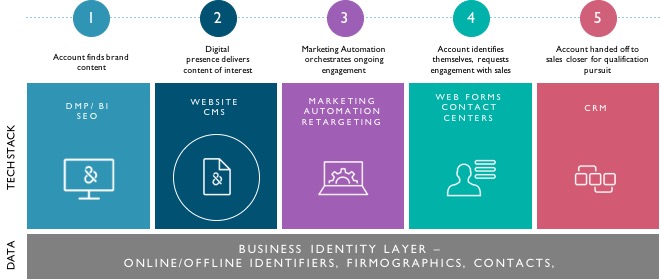
By Anudit Vikram
Sr.Vice President of Audience Solutions
Dun & Bradstreet
October 29, 2018
3 Reasons You Need an Identity Key
In today’s omnichannel, cross-platform world, it’s easier than ever for companies to connect with their customers and prospects, but the interesting paradox is that it is extremely hard to do so in a meaningful way. Not only must brands develop engaging content that stands out from the competition, they need to ensure the right message is delivered to the right person at the right time and in the right context. While that might sound cliché, it’s as critical as ever.
In order to deliver a truly compelling message to your target audience, it’s important to:
- Decide the organization (account) you want to target
- Identify the individual you want to deliver the message to
- Understand how the individual fits into their respective organization
By understanding their unique roles and responsibilities, and where they fall within the hierarchy of an organization, you’ll have a better sense of how to tailor the message to meet their specific needs.
While there is copious information (firmographic and technographic data on companies, behavioral and intent data from web, mobile, event engagements, and content consumption analysis) available to help B2B marketers better understand their prospect accounts and target personas, many marketers find it difficult to stitch the pieces together to effectively deliver their message.
According to a recent study of over 250 B2B organizations , marketers struggle to turn their abundant customer data into actionable insights that help them identify and target the right individual at the right account. Some interesting findings uncovered in the report were:
- Only half of marketers are confident in the quality of their data
- Over two-thirds (70%) are not confident in being able to identify anonymous traffic
- Fifty-six percent said it’s very difficult to align sales and marketing data about companies and contacts when executing programs across multiple channels
In our increasingly digital world, where a large percentage of interactions between B2B marketers and their prospects and customers are online and anonymized, the data management challenge is only a small part of the complexity the marketer faces. Even if marketers are able to aggregate customer information from their digital properties and CRMs, they still need a way to manage identity. Effective identity management allows marketers to pinpoint – with a relatively high degree of certainty – a specific asset, an individual, a company, or an organization from amongst a set of many such entities that may look alike or are presented in an anonymized manner.




